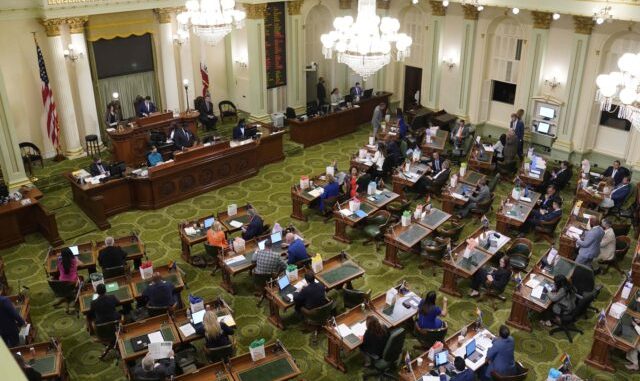
| Published April 29, 2025
SACRAMENTO, CA — A contentious battle over child sex trafficking legislation has reignited in California’s State Assembly, as Democrats on the Assembly Public Safety Committee blocked a bill that would have made sex trafficking of minors a felony offense once again. The proposal, introduced by newly elected Democratic Assemblymember Maggy Krell—a former prosecutor with 20 years of experience handling trafficking cases—faced an abrupt halt, despite mounting public concern.
The bill’s failure to advance has sparked outrage across party lines and among child advocacy groups, who see it as a missed opportunity to strengthen protections for minors. Krell’s proposal sought to close a loophole in California law that punishes traffickers of 18-year-olds more harshly than those trafficking minors, a disparity she labeled as “a disgrace.”
“This bill was about protecting children, plain and simple,” Krell said in an interview with KCRA 3. “I’ve been doing this for 20 years, and I’m not going to quit now. I will bring this part of the bill back every year until I get the books to protect children.”
According to Krell, her bill was removed from the Public Safety Committee’s agenda just days before it was expected to be heard. She was informed it could only return if certain parts were stripped out—an ultimatum that she said undermines the core intent of the legislation.
Republican Senator Shannon Grove, who has pushed for tougher penalties on traffickers, did not mince words: “It’s completely evil.” Grove’s frustration was echoed by Assemblymember Kevin Shultz, chair of the Public Safety Committee, who acknowledged that last year’s legislative agreement was still shaping the fate of this year’s proposal.
“My perspective as chair, there was a carefully crafted deal last year,” Shultz said. “We’re not saying no, but what we’re saying is if we’re going to be thoughtful policy makers, we really need to dive deep into this issue.”
That deal refers to California’s 2022 move to decriminalize loitering for prostitution, a decision that Krell’s current bill sought to partially roll back. Her measure would reinstate penalties for individuals caught loitering with the intent to buy sex—what she called “creeps in cars”—imposing a misdemeanor charge and a fine of up to $1,000, with funds directed toward trafficking survivor support.
While Krell has been forced to move forward with a scaled-down version of the bill, she insists the fight is not over. “It’s still a really hard bill. I’m hustling to even get the votes on this with the hearing tomorrow,” she said.
Critics argue that the Legislature’s unwillingness to revisit aspects of last year’s reforms is placing politics ahead of public safety. Supporters of the bill, including victims’ advocates and law enforcement officials, say it’s imperative to send a clear message that sex trafficking of children will not be tolerated.
As the debate continues, California finds itself at the crossroads of progressive criminal justice reform and the urgent need to protect vulnerable youth. For Krell and her allies, the message is clear: the fight for justice and accountability isn’t over—it’s just beginning.
SOURCES: BREITBART – California Democrats Block Bill to Make Sex Trafficking of Minors a Felony — Again
KCRA 3 – California lawmakers to block effort to make it a felony to buy 16 and 17-year-olds for sex





Be the first to comment